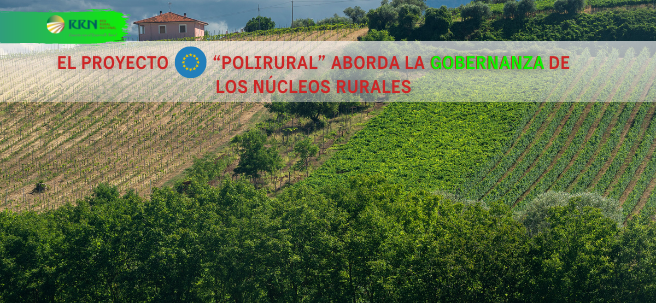
24 de June de 2022
Polirural is an innovation project that provides rural communities with access to knowledge through an inclusive learning environment where rural communities, researchers, and policymakers come together to develop common strategies. Its goal is to prepare policymakers and decision-makers in rural areas as fully prepared as possible for existing and emerging rural challenges.
The European project "Polirural" addresses the governance of rural areas
- Depopulation, land abandonment and biodiversity loss are the challenges that are intended to be addressed, giving rural populations a leading role in decision-making.
- This project has received funding from the European Union's Horizon 2020 research and innovation programme.
"Everything for the people, but from the people." This principle of "enlightened ruralism" seems to be the core of the Polirural project , launched in June 2019 by the University of Life Sciences in Prague (Czech Republic).
Polirural is an innovation project —funded by the European Union's Horizon 2020 research and innovation program —that provides rural communities with access to knowledge through an inclusive learning environment where rural communities, researchers, and policymakers come together to develop common strategies. The following methodology is used to achieve this goal:
- The evaluation of the effectiveness of the political interventions planned up to that point
- A study that outlines the possible future development trajectory of agriculture and related sectors through 2040, using several scenarios in which rural society plays a central role in all possible scenarios.
PoliRural's goal is to prepare policymakers and decision-makers in rural areas as fully as possible for existing and emerging rural challenges. Ultimately, it's about building resilience and empowering these areas.
Goals
To achieve this, the project establishes 4 priority goals:
- Design a governance policy innovation center for participatory rural policy . This involves:
- Build a community in each pilot region (12 in total) with a government agency (regional or local); a rural community-based organization ; and a university, research and/or innovation company .
- Minimize the research-policy-practice gap by including everyone in identifying problems, searching for information, and proposing solutions.
- Promote knowledge exchange within regions through a digital policy innovation hub and a free, publicly accessible online course (“ MOOC” ).
- Measure regional sensitivities regarding the policies to be developed through:
- Surveys
- The use of "text mining" (a process for extracting high-quality information from text) in multiple languages and contexts to test the objectives of rural policy implemented to date.
- Establish a forecast for the evolution of these localities, based on their history and anticipating possible future scenarios:
- Using quantitative and qualitative methods that cross-reference economic, social, political, and environmental data from the 12 pilot regions through 2040.
- Use a policy simulation software program to help policymakers understand the interrelationships and influence of different policies, factors, and forces on their dynamics.
- Establish a rural philosophy that moves towards attractive rural living conditions:
- With an investigation into the factors that make certain rural locations and professions more in-demand than other locations and trades.
- Integrating new residents who have arrived in rural areas.
Pilot regions
The pilot regions where the “regional action plans” are being developed are: Flanders (Belgium), Monaghan (Ireland), Segobriga (Spain), Vidzeme (Latvia), Mazowieckie (Poland), Central Bohemia (Czech Republic), Slovakia, Häme (Finland), Central Greece (Greece), Apulia (Italy), Gevgelija-Strumica (Macedonia) and Galilee (Israel).
The main objective of the regional action plans is to define solutions to address the identified challenges for the future. So far, the conclusions drawn from these plans are:
- Most of the challenges identified are related to the prosperity of rural areas, particularly the lack of economic diversification there.
- The lack of quality internet connection and the limited digitalization of the primary sector means that rural areas do not feel connected .
- The pilot regions have identified climate change adaptation, carbon footprint reduction, and nature protection as resilience -oriented challenges.
- The pilot regions see improving the governance of their regions as one of the most important steps towards their development.
Seminars
Polirural organizes seminars and activities that can be consulted here .











